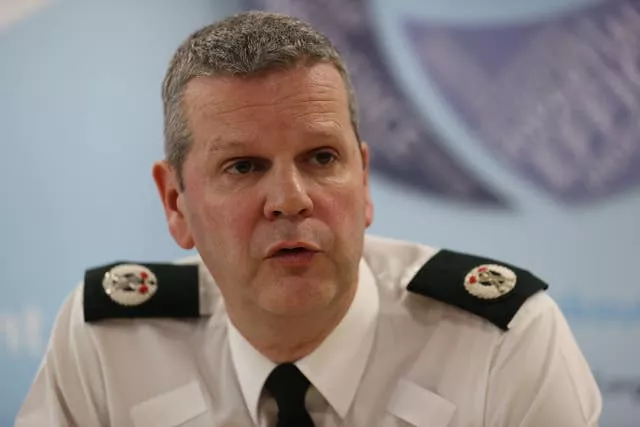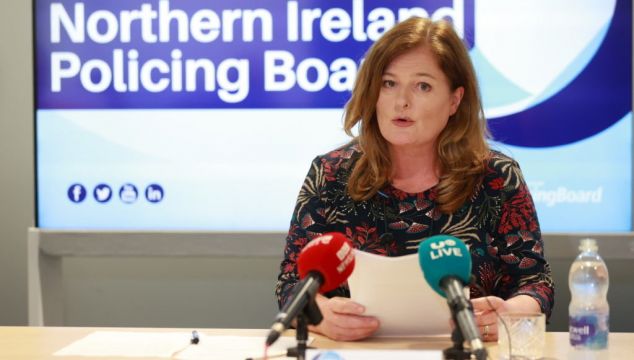The selection process for the next Chief Constable of the Police Service of Northern Ireland (PSNI) is to complete in November.
Deirdre Toner, chair of the Northern Ireland Policing Board, said the process of finding a new chief constable has begun, and the recruitment competition will open at the end of September.
It follows the resignation last week of former chief constable Simon Byrne following a string of controversies.
The PSNI’s oversight body met behind closed doors for most of Thursday.
Assistant Chief Constable Chris Todd and chief operating officer Pamela McCreedy attended at one stage in the afternoon for a briefing.

In a press conference on Thursday evening, Ms Toner said recent board meetings have not been held in public due to the sensitive nature of what was being discussed.
She said the board agreed the timescale and started the process for the appointment of a new chief constable, with the selection process scheduled to complete in early November.
Pressure has been mounting on the leadership of the PSNI after a data breach which disclosed personal details of officers and staff, and a critical High Court judgment which said the disciplining of two officers following an arrest at a Troubles memorial event in Belfast in 2021 was unlawful.
Deputy Chief Constable Mark Hamilton was to assume the responsibilities of the chief.
He had been expected to attend an extraordinary meeting of the Police Federation, which represents rank-and-file officers, on Wednesday but was unable to attend due to an unplanned medical procedure.
Ms Toner said she expects Mr Hamilton to be back at his desk “in a few days”.
She added he is still in that role and some duties have been delegated to his senior management team.
Vice-chair of the board Edgar Jardine said “yes” when asked if the assistant chief constables were “currently in charge”.
Ms Toner emphasised that as well as the data breach, the PSNI is also facing “an extremely difficult financial position that needs to be resolved, including recovery and financial implications of the data breach”.

“The board’s priority over the last few days has been to bring stability and confidence in what has been an unprecedented time for policing, and for our role as a Policing Board,” she said.
“At this time, we also appreciate that police officers and staff at all levels across the organisation continue to deliver an essential public service to the community and deserve everyone’s support.”
During the meeting of the Police Federation on Wednesday, the federation unanimously passed a vote of no confidence in Mr Hamilton, and also expressed no confidence in Ms McCreedy and assistant chief officer Clare Duffield.
There have been calls for the appointment of an interim leader to steer the service during the period of crisis.
Ms Toner said the “authority gaps” within the force need to be addressed and were discussed on Thursday, but that public commentary on confidence in individuals on the service’s senior leadership team “is not endorsed by the board”.
Ms Toner also rejected “criticisms that the board is not working around the clock to fix all of the issues that we need to look at”.
She said there were “complex” legal and HR issues to navigate, and a funding crisis that faced the police force.
“It is a challenging board,” she said.
Mr Jardine said the structures of the Policing Board were designed to work within “a functioning Assembly” and the fact that power-sharing institutions were not operating “does create difficulties, not least the absence of a finance minister”.







